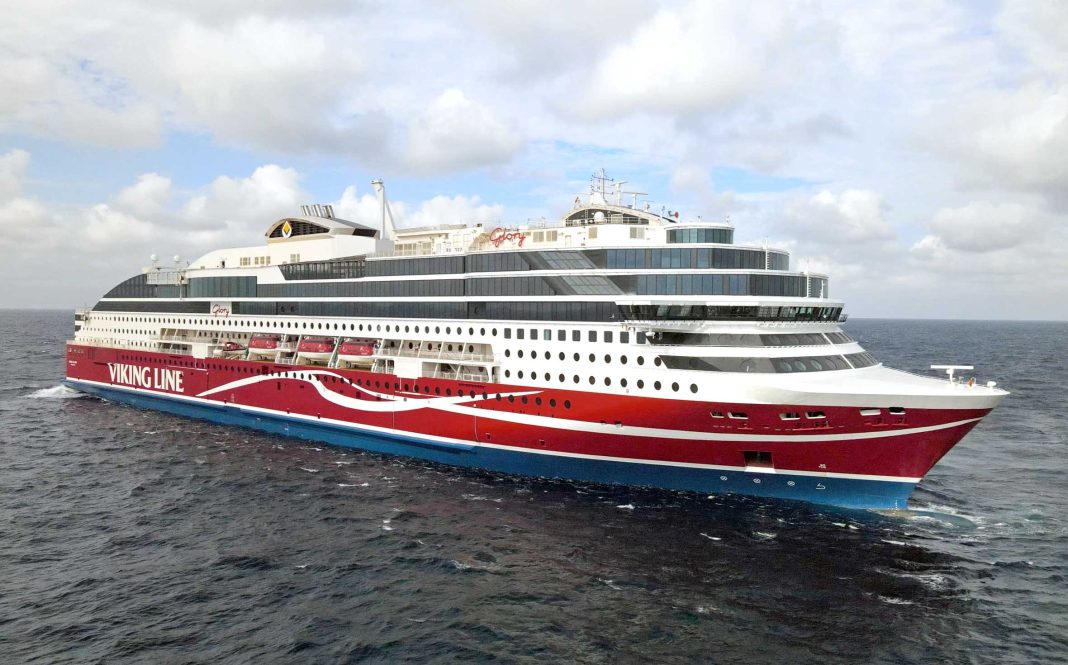When Viking Glory is launched in service in March, the environmental impact of Viking Line’s vessels on the Turku–Mariehamn–Stockholm route will be further reduced.
Viking Glory has 66 per cent more cargo capacity than Amorella, but is expected to produce more than 25 per cent fewer emissions than its predecessor. Viking Glory and Viking Grace, which began serving the route in 2013, are now the two most climate-smart vessels sailing the Baltic Sea.
Waste heat from the vessel’s engines is converted into electricity, while waste cold from liquefied natural gas is used for cooling. Her hull minimises water resistance, and an intelligent automated control system turns off air conditioning in empty cabins.
The new Viking Glory’s innovative solutions make her one of the world’s most climate-smart passenger ships. Glory’s Azipod propellers and other technical innovations save considerable time in port, which gives the ship leeway in terms of keeping to the timetable. Every minute saved in port results in fewer emissions during the sea journey.
However, being climate-smart is not just the privilege of Viking Line’s newest vessel. The company is developing its other vessels so that they are more energy-efficient throughout their life cycle: the steering and air conditioning systems are being updated, new technology is installed each year, and even the hull can be modified to reduce resistance.
Viking Glory has engines that run on totally sulphur-free liquefied natural gas. She is one of the first vessels in the world to use Wärtsilä’s 31DF dual-fuel engines and run on liquefied natural gas (LNG).
They enable optimization of fuel use but produce no sulphur emissions at all. Furthermore, they produce fewer carbon dioxide emissions than do diesel engines.
When Viking Grace started running on liquefied natural gas, sulphur and particulate matter emissions were reduced by 85 per cent while greenhouse gas emissions were reduced by 15 per cent compared to oil.


